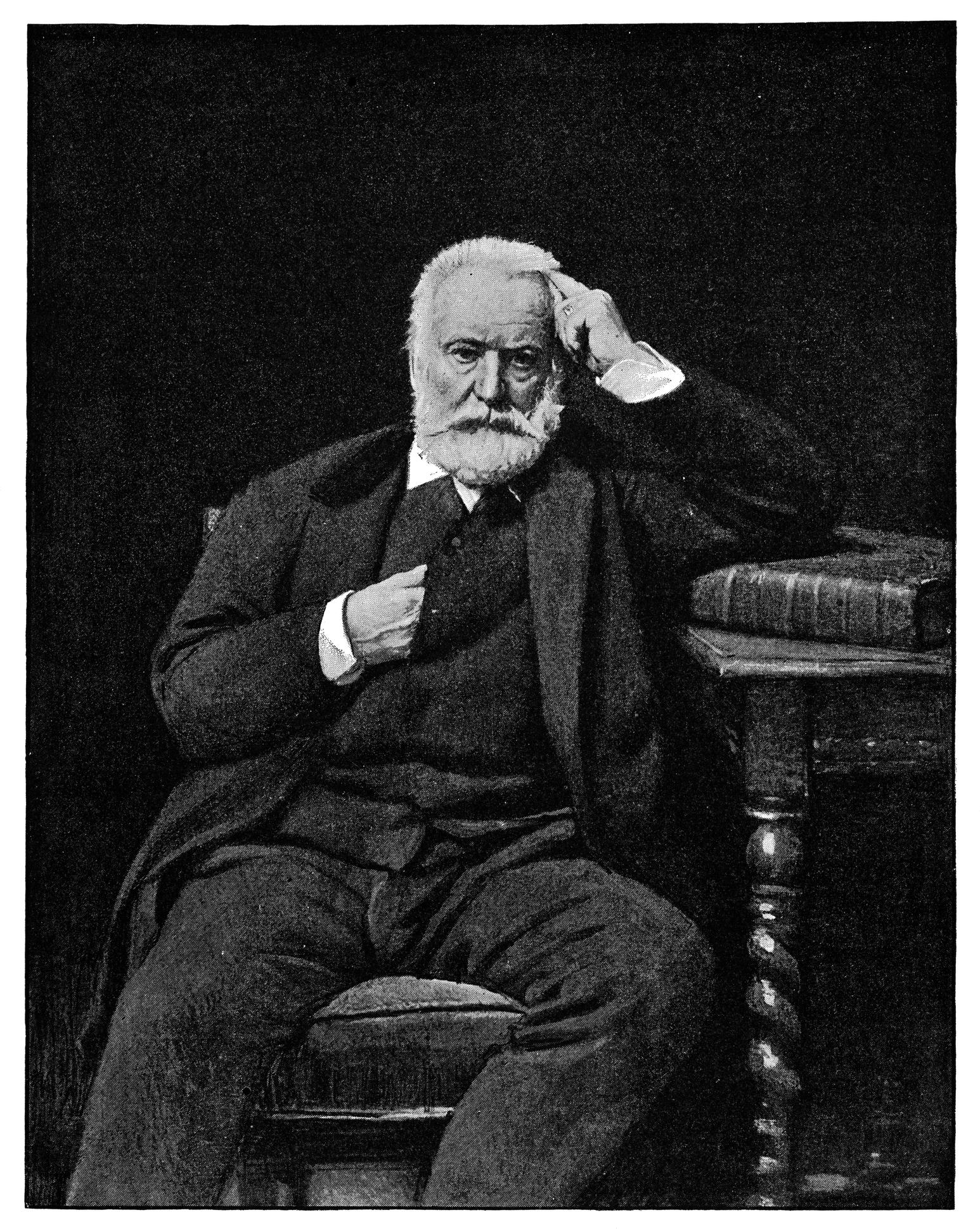Writing is a fundamental skill that has become increasingly important in the digital age. With the rise of content marketing and online platforms, writing has become an essential tool for businesses, individuals, and organizations. Writing is like painting with words; every sentence is like a brushstroke that can bring a story to life. For that, it's important to master the art of writing to produce content that engages, informs, and inspires your readers.
In this article, we'll explore some effective writing techniques that can help you improve your writing skills and produce high-quality content. From understanding your audience to structuring your content, we'll cover everything you need to know to write effectively.

1. Define Your Target Audience and Tailor Your Writing to Their Needs and Interests:
Understanding your audience is essential for effective writing. When writing for a particular audience, it's important to consider their interests, needs, and expectations. This knowledge will help you create content that resonates with them and engages them.
Writing techniques associated with formal writing can be helpful in creating content that appeals to a specific audience. This style of writing is characterized by a clear and concise writing form that avoids using slang, colloquialisms, or contractions. This is particularly important when writing for a professional or academic audience, as it can affect the credibility of your writing.
Find out about getting private English tuition here on Superprof.
2. Develop a Writing Plan that Includes Clear Goals and Objectives:
Having a plan is essential for any writing project. A writing plan should include clear goals and objectives that help you stay on track and focus on what you want to achieve. This can include a detailed outline of your content, deadlines for completing different sections, and a timeline for finalizing your work.
Old writing styles can be a great source of inspiration when developing your writing plan. These styles of writing letters, such as Victorian or Gothic styles, can help you develop a unique voice and style that sets your work apart from others.

3. Conduct Thorough Research to Gather Credible and Reliable Information:
Research is an essential part of any writing project. This involves finding reliable and credible sources of information that support your arguments and ideas. When researching, it's important to evaluate sources carefully to ensure that they are trustworthy and relevant to your topic.
To create compelling content, it's important to understand writing patterns associated with your topic. This can include identifying common themes, trends, or arguments related to your subject matter. By doing so, you can create content that engages your readers and provides unique insights.
4. Find Your Writing Style
When we write a paragraph, we can sometimes be carried away by the feeling that we have succeeded in writing something great. On the other hand, it is not uncommon for the feeling of disappointment to overwhelm us, sometimes leaving us thinking that we are not good at anything and that writing is not for us.
These conflicting emotions are directly related to the question of style, and re-reading your work is crucial to determine how to convey the story’s point.
Repetitions, unnecessary adverbs that weigh down the text, sounds that are too similar in the same sentence, there are a thousand and one details that can escape us on a first reading.
This is why reading, re-reading and then re-reading again is a particularly effective exercise for refining one's writing style. Logically, rewriting is just as useful for realising in a concrete way that, yes, writing is also (and above all) work!
Reading To Find Your Writing Style
It is a fact that reading is a popular activity in the UK. And what if reading was not just a tool for escape and knowledge? Indeed, when you want to develop your writing style, reading is one of the first reflexes.
From Zadie Smith to Agatha Christie to Sally Rooney, literature is the first source of inspiration for apprentice writers.

Victor Hugo was a prominent figure in French Romanticism and was recognized as one of the greatest writers of his time. Hugo's literary works often tackled themes of social justice, morality, and the human condition, and his writing style was characterized by his use of vivid imagery and emotional depth. He was also a political figure, serving in the National Assembly and advocating for various causes, including the abolition of the death penalty. Hugo's legacy continues to inspire writers and readers alike around the world.
By imbibing literary reflexes, by noticing the use of certain phrases, a little inner mixture will be created between all the readings, in order to form what some might call: a style of your own.
On the other hand, it is essential to 'know' how to read. Like writing, reading requires a certain amount of reflection, a concrete experience of the world being created.
Writing Regularly to Find Your Style
As you can see, regularity seems to be one of the keys to finding your style. Regularity of reading, regularity of rewriting, but also and above all: regularity of writing. Because let's not forget that to find a writing style, one of the keys remains... writing!
In this way, writing a text with a certain style does not necessarily mean that the text is good. Conversely, writing a fascinating text does not always mean that it is written with a catchy style.
The idea when writing is not to see every text we produce as a 'good' text. It is important to start from the principle that writing is a real task to be worked on, and that not all our texts are stylistically equal.
However, this does not mean that a text with a style that does not suit us does not deserve our full attention. With a lot of rewriting, we can sometimes work wonders!
That’s where setting goals comes in. If one of your goals is to build a style take a little time each day to try to play around with different styles. Try to add or delete dialogue, remove slang words, or correct a particular point of grammar throughout the manuscript. This will help to balance and harmonise the whole, little by little.
Nevertheless, writing regularly allows us to develop our own reflexes, which are often linked to the way we write. Some call it style!

Forgetting the Rules to Find Your Writing Style
It may seem paradoxical, or even contradictory, but in order to write well and find one's style, it is just as important to adhere to certain rules as to deviate from others. It is because of this that you can sometimes recognise an author from the first words.
Typically, when one seeks to tell a love story, one often imagines a lyrical tone, specific keywords, and a rather sentimental character style.
However, it is quite possible to use journalistic writing, to make editorial mistakes in selected passages, and to undermine this universal theme through style. Of course, we are not talking about changing the font here, but about making optimised changes in order to build the style that suits us.
This example tells us nothing other than that there is often a tendency to try to match content and form when writing. However, when you want to create your own style, it is important to listen to yourself, and this does not always correspond to the established narrative frameworks. In this way, a style can be developed through this experimentation.
In the same way, if we tend to eliminate adverbs too often from our sentences, adding them allows us to build a muddy, rather heavy style, which, despite everything, remains a style like any other. Let's not forget that having a style does not necessarily mean having a style that suits everyone!
Take Writing Classes
Let's face it, from the layout to the actual writing, via the editorial style, finding your style cannot be learned in a day. You can always write academically or try to give your professional writing a detached tone. However, if style cannot be learned, it can be worked on.
This is why it can be interesting to turn to organisations whose job is precisely to teach students to develop a narrative, or a stylistic style, or to learn how to write a complete manuscript.
From independent schools to university courses, the UK has an increasing number of courses of this type, which, thanks to relevant advice, make it possible to account for all the writing that it is possible to adopt.
Here are the top 10 writing classes offered in the UK:
- The Faber Academy - offers a range of creative writing courses and workshops for aspiring writers.
- Arvon - offers residential creative writing courses in a variety of genres, led by published authors.
- Curtis Brown Creative - offers a range of writing courses, including novel-writing courses, short story courses, and screenwriting courses.
- City Lit - offers a range of writing courses, including creative writing, memoir writing, and writing for children.
- The Guardian Masterclasses - offers a variety of writing courses led by industry professionals.
- London School of Journalism - offers a range of courses in journalism, including news writing, feature writing, and sports journalism.
- The Writers' Workshop - offers a range of writing courses, including novel-writing courses, memoir-writing courses, and poetry courses.
- The Poetry School - offers a range of courses and workshops focused specifically on poetry writing.
- Oxford University Department for Continuing Education - offers a range of part-time courses in creative writing, including novel writing and screenwriting.
- The University of East Anglia - offers a prestigious MA in Creative Writing, as well as a range of other writing courses.
Sign up for private lessons with an English tutor here.
These writing techniques and tips are essential for authors who aspire to publish their novels. One of the most important techniques is to develop a consistent writing routine. This involves setting aside a specific time each day or week to write, as well as establishing goals for each writing session. Another technique is to use outlines and storyboards to organize the plot and characters.
Additionally, authors can benefit from seeking feedback from beta readers or writing groups, as well as utilizing the services of professional editors to refine their manuscripts. Once the novel is complete, authors should research and submit it to agents or publishers who accept their genre. Self-publishing is also an option, but it requires additional work in marketing and promoting the book. By implementing these techniques and persevering through the publishing process, authors can achieve their dream of seeing their novels in print.
Mastering writing techniques is essential for anyone who wants to improve their writing skills. While old-style writing may have its charm, modern writing forms have evolved to suit our fast-paced world. It's important to explore different styles of writing letters, patterns, and ways to write and find what works best for you.
Students of all ages benefit from the expertise and commitment of a dedicated English tutor If you're a writer of short, serious pieces or wondering what to write about, consider experimenting with different writing techniques to expand your horizons.
If you want to improve on essay writing, practice and feedback are key. With dedication and effort, anyone can improve their writing skills and become a proficient writer.
Get to your pencils, and your computers, your style is waiting to be developed!
Summarise with AI:















